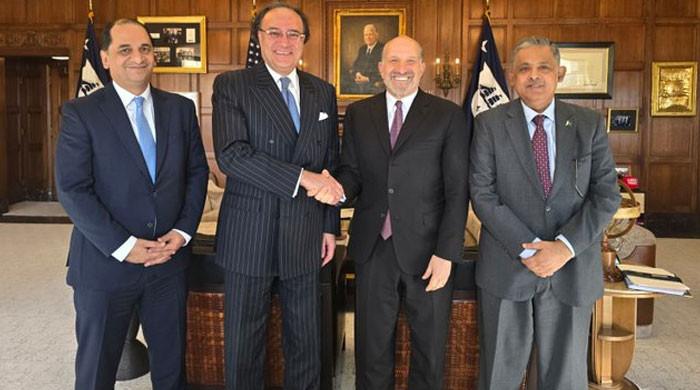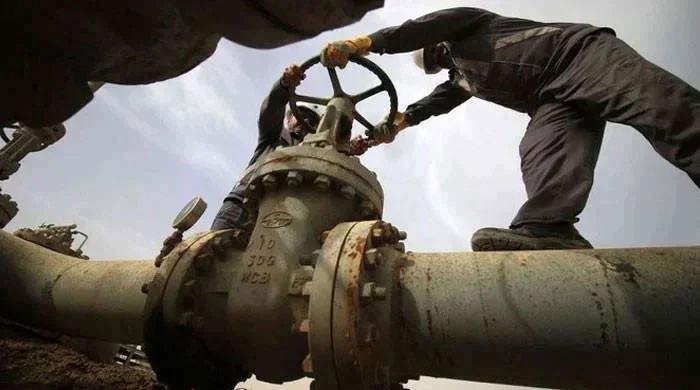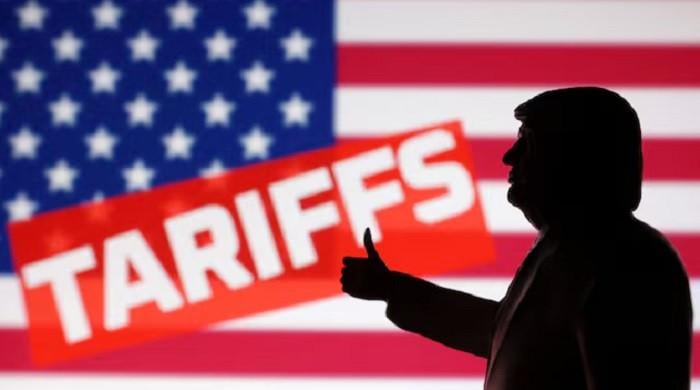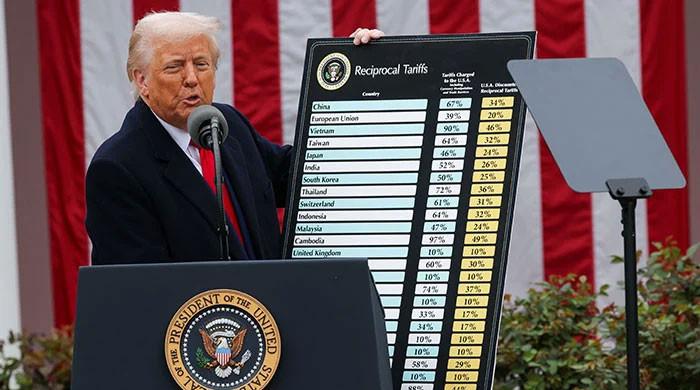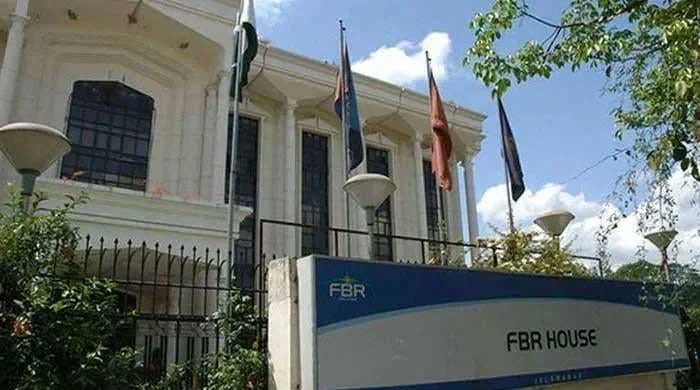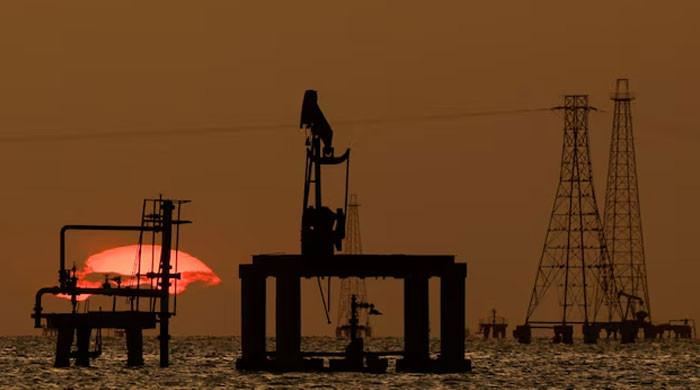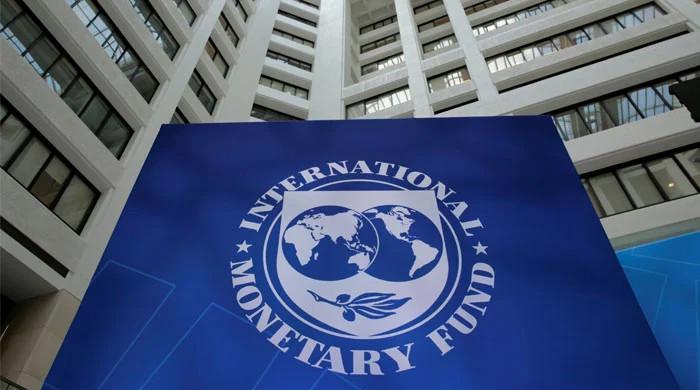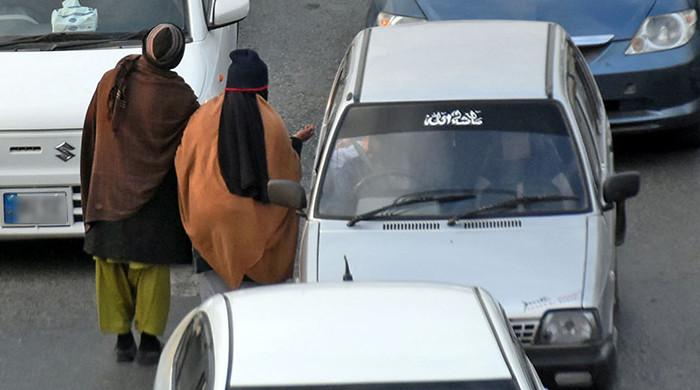Saudi forum set to draw US business leaders despite tensions
US executives head to kingdom despite political friction; Riyadh striving to diversify oil-dependent economy
October 23, 2022
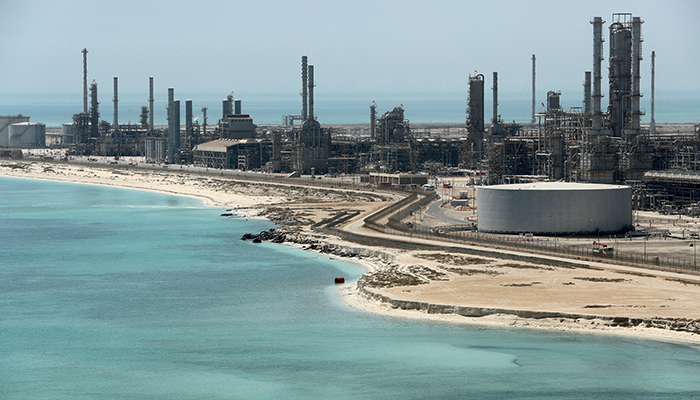
- US executives head to kingdom despite political friction.
- Riyadh striving to diversify oil-dependent economy.
- Investment levels remain below target.
DUBAI: A public spat between the United States and Saudi Arabia will not deter top Wall Street executives and US business leaders from a flagship investment event starting on Tuesday where the kingdom will seek deals to reduce its economy’s reliance on oil.
President Joe Biden has vowed "consequences" for US-Saudi ties over an OPEC+ decision this month to cut oil output targets, which Riyadh defended as serving market stability.
The dispute was the latest shadow to be cast over the annual Future Investment Initiative (FII), which was hit by a Western boycott over the 2018 murder of Saudi journalist Jamal Khashoggi and by the pandemic in 2020, leaving it a far cry from the 2017 inaugural event that Riyadh billed as "Davos in the Desert".
FII recovered in 2019 after the uproar over Khashoggi's killing by Saudi agents, drawing big names from financial, defence and energy firms with strategic interests in the world's top oil exporter, but garnered relatively meagre foreign inflows.
More than 400 US delegates are expected to attend this week, Richard Attias, CEO of the FII Institute, told Reuters, adding this was the largest representation of a foreign country.
This year's edition, running October 25-27, includes JPMorgan boss Jamie Dimon, Pimco Vice Chairman John Studzinski and a BNY Mellon executive as speakers, and they still plan to go, spokespeople for the companies told Reuters.
Top executives from Goldman Sachs, Blackstone, Bridgewater Associates, Boeing and Franklin Templeton are on the agenda. Goldman Sachs declined comment, while the rest did not respond.
JPMorgan and Goldman Sachs made nearly $77 million and $42 million respectively in investment banking fees in Saudi Arabia last year, Refinitiv data showed. JPM remains at the top of the league table in 2022 with over $39 million so far.
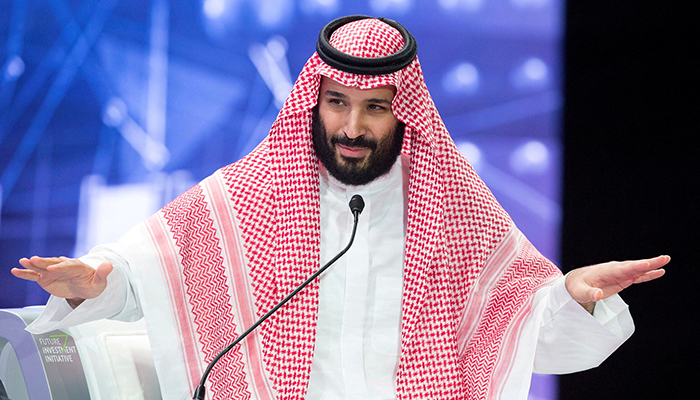
"For the most part, I do not see US companies actively avoiding Saudi Arabia due to recent political tensions," said Adel Hamaizia, managing director at Highbridge Advisory and a visiting fellow at Harvard University.
"US companies will be an important partner to Saudi's investment and growth plans, in traditional sectors, but also in 'newer' fields including tourism, entertainment, EV production, technology and a nascent local defence industry," Hamaizia said.
The FII is a showcase for Crown Prince Mohammed bin Salman's Vision 2030 development plan to wean the economy off oil by creating new industries that also generate jobs for millions of Saudis, and to lure foreign capital and talent.
FDI flat
Foreign direct investment still lags behind targets, though there has been movement in new sectors as the kingdom opens up. As Boeing netted an $80 million defence contract last year, FedEx announced a $400 million 10-year investment plan in the country, the Arab world's biggest economy.
At 15.3 billion riyals ($4.07 billion), inward FDI for the first half of the year was about a fifth of the $19.3 billion secured in 2021, which had included a $12.4 billion investment for Aramco's oil pipeline infrastructure.
It is well below the 2030 target of $100 billion a year under a national strategy aiming for foreign direct investment equalling almost 6% of GDP by 2030.
Uncertainty lingers around the regulatory and tax environment as well as high operational costs and lack of a skilled local workforce, even after Riyadh handed companies an ultimatum to locate regional headquarters in the kingdom by 2024 or lose out on lucrative government contracts.
"FDI flows have remained stubbornly flat and low, under 1% of GDP, and some of the notable names that have invested have had only modest success, even with government backing," said Justin Alexander, director of Khalij Economics and Gulf analyst at GlobalSource Partners.
This has left the Saudi government and the Public Investment Fund to try to deliver on the crown prince's diversification promises, aided by a petrodollar windfall.
A worsening global economic outlook and oil market volatility has raised the stakes for the government in pursuing Vision 2030, which includes a $500 billion project to build a huge, high-tech economic zone on the Red Sea called NEOM eventually meant to house nine million people.
"The government cannot afford to drive economic development indefinitely but for the time being there is no real alternative as domestic businesses are unfit to play that role, and FDI continues to disappoint," said Neil Quilliam, associate fellow at Chatham House.




